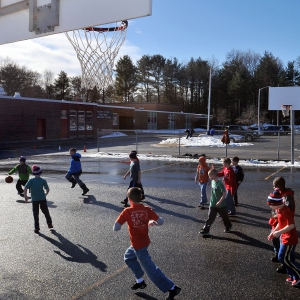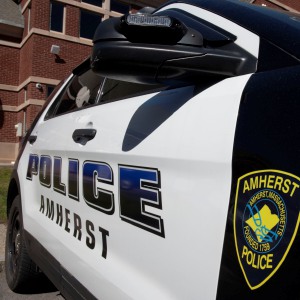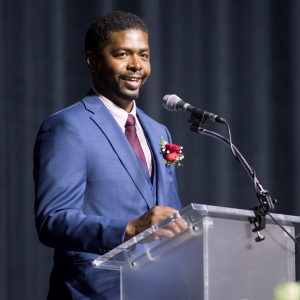Book Bag: ‘High Bridge’ by Michael Miller; ‘Homeland: My Father Dreams of Palestine’ by Hannah Moushabeck
| Published: 03-24-2023 3:33 PM |
High Bridge
By Michael Miller; Köehler Books
Fayetteville, New York is not exactly a well-known locale. But in the mid-19th century, this village outside Syracuse was home to two people who would later make significant marks in U.S. history: President Grover Cleveland and writer and women’s rights activist Matilda Joslyn Gage.
Fayetteville is also the principal setting for a new novel, “High Bridge,” by Northampton author Michael Miller, who grew up in a small town himself and has used the historical record of both Cleveland and Gage to imagine how they might have formed a friendship earlier in their lives, in the mid-1840s.
They would seem an unlikely pair. Matilda (born in 1826) is a young married woman who is outspoken about the gross inequalities of American life, especially the absolute power white men hold in society. She’s also a staunch abolitionist — her childhood home was a stop on the Underground Railroad — and she advocates for Native American rights as well.
Interesting fact: One of Gage’s daughters, Maud, married L. Frank Baum, author of “The Wizard of Oz.”
By contrast, Grover Cleveland, whose first name was actually Stephen, was born in 1837. In Miller’s story, he’s simply Steve, a young boy enamored of a new game called baseball and known around town for pulling Tom Sawyer-style pranks, much to the frustration of his stern father, Richard, a Presbyterian minister.
“Keep your temper, Richard,” his wife, Ann, cautions the minister after a rumor gets started that Steve has had something to do with the sinking of a pair of tow boats on the nearby Erie Canal. “He’s just a boy.”
Article continues after...
Yesterday's Most Read Articles
 Holyoke man finds bear paw in his yard
Holyoke man finds bear paw in his yard
 Boyfriend accused in slaying of Hampden sheriff’s assistant, former legislator’s top aide
Boyfriend accused in slaying of Hampden sheriff’s assistant, former legislator’s top aide
 Three finalists named for Ryan Road School principal in Northampton
Three finalists named for Ryan Road School principal in Northampton
 Developer pitches new commercial building on Route 9 in Hadley
Developer pitches new commercial building on Route 9 in Hadley
 Two men dump milk, orange juice over themselves at Amherst convenience store
Two men dump milk, orange juice over themselves at Amherst convenience store
 Sadiq to leave Amherst middle school principal role
Sadiq to leave Amherst middle school principal role
“As far as I can tell, he’s a nine-year-old hellion without a compass!” the reverend huffs.
“High Bridge,” which takes its name in part from a hamlet just outside Fayetteville, is told in both first and third person, with Matilda narrating one section as she’s growing up, then Steve taking over as he describes his high jinks (usually with his older brother Will) and his fear of punishment from his father, who he’s convinced has it in for him in general.
The novel has a good feel for the sounds and rhythms of 19th-century life, such as the mix of fear and exhilaration Matilda feels when she, her mother, and her father creep through marshes one night to meet up with couriers transporting two escaped enslaved people from the South; their family is part of a chain that will eventually get the runaways to Canada.
There are also some telling descriptions of what a 19th-century town might have smelled like, where open markets full of fresh food and spices battle with the stink coming off the fetid, polluted waters of the Erie Canal and muddy streets peppered with animal waste.
Steve and Matilda meet when Steve and Will, in their latest prank, remove hinge pins from gates from several homes, including a gate at Matlida’s house, where she lives with her husband, Henry. To make amends, Steve does some chores for Matilda, who takes a liking to the spirited boy and shares her thoughts about life with him.
The two will draw closer when a free Black man in town is falsely accused of murder and they have to combine their skills to solve the mystery behind the accusation — and perhaps Steve will finally be redeemed in his father’s eyes.
Miller, a retired college professor and New Jersey native, says Cleveland and Gage were certainly together at a White House reception in March 1888, during Cleveland’s first term as president, but “details of their childhoods and adolescence are less certain. I took advantage of these ambiguities when I imagined this story.”
That creative license serves one scene especially well, when Matilda and Henry first meet the “dour, hulking” Rev. Cleveland and she can’t hold back her unladylike opinions on racism, women’s rights, religion and more. Henry tries to steer the conversation to more neutral ground, to no avail.
“Matilda spoke as if a cork had been removed from a bulging bottle … Henry and Ann sat dumfounded. Rev. Cleveland’s slack face reflected the offense he took [at] Matilda’s words.” Around the corner is “a stunned Steve, who barely understood what had been said but most certainly appreciated its tone.”
“Both Gage and Cleveland remind me of Michelle Obama’s credo: ‘When they go low, we go high,’ ” Miller writes in an afterword. “Each of us needs to seek that high bridge.”
There will be a book launch for “High Bridge” on April 4 at 7 p.m. at the Odyssey Bookshop in South Hadley.
Homeland: My Father Dreams of Palestine
By Hannah Moushabeck
Illustrated by Reem Madooh; Chronicle Books
Growing up mostly in Leverett, Hannah Moushabeck remembers hearing any number of bedtime stories from her father, Michel, alongside her two sisters.
Sometimes these were imaginary tales — “a hero climbing a tower to rescue a magical princess” — but more often they were stories her father related about growing up in the Mideast and visiting his family’s ancestral home in Palestine.
In “Homeland: My Father Dreams of Palestine,” Moushabeck, today a marketing manager for Simon & Schuster, has written her first children’s book, based on the family stories she heard, including the times her father visited his grandfather, or “Sido,” in the Old City of Jerusalem.
“[O]ur homeland,” she writes, is “a place we’ve never been.”
As Moushabeck relates in an afterword, her extended family lived in West Jerusalem until May 15, 1948, the day Israel was declared an independent nation and the first Arab-Israeli War began.
Forced into exile, some of her relatives, including her father, would return to Jerusalem for summer visits, but these ended when the 1967 Arab-Israeli War began.
But in the colorfully illustrated story, her father, as a boy, visits his grandparents’ home in Jerusalem, where his “Teta” (grandmother) Maria urges him to eat more at breakfast, and his grandfather, Abu Michel, a community leader, takes him round the neighborhood, greeting everyone in turn.
Hannah’s father recalls the smells and sights of the city — the muezzin’s call to prayer, food in cafes, shops selling all manner of goods — and the unique work of a juice vendor, who bangs out rhythms on cups and saucers to get people’s attention.
“We know the ending of this story is not a happy one,” Moushabeck writes. “We know that we may never sit and watch the juice man by Jaffa Gate. But we whisper the hope of return as we turn out the light.”
Kirkus Reviews calls the story a “beautiful tale of family, love for a lost homeland, and remembrance.”
“Homeland” is in keeping with the literary tradition of the Moushabeck family: Michel Moushabeck is the founder of Interlink Publishing in Northampton, and Hannah Moushabeck and her sisters are all involved in the business.
There will be a book launch for “Homeland” April 6 at 6 p.m. at the Media Education Foundation in Northampton. Hannah Moushabeck will also give a Zoom-based talk April 5 at 6 p.m. at the Odyssey Bookshop.
Steve Pfarrer can be reached at spfarrer@gazettenet.com.

 Painting a more complete picture: ‘Unnamed Figures’ highlights Black presence and absence in early American history
Painting a more complete picture: ‘Unnamed Figures’ highlights Black presence and absence in early American history Earth Matters: From Big Sits to Birdathons: Birding competitions far and near
Earth Matters: From Big Sits to Birdathons: Birding competitions far and near The Beat Goes On: Album release shows by Barnstar! and Lisa Bastoni, a Young@Heart Chorus concert with new special guests, and more
The Beat Goes On: Album release shows by Barnstar! and Lisa Bastoni, a Young@Heart Chorus concert with new special guests, and more Speaking of Nature: Indulging in eye candy: Finally, after such a long wait, it’s beginning to look like spring is here
Speaking of Nature: Indulging in eye candy: Finally, after such a long wait, it’s beginning to look like spring is here
